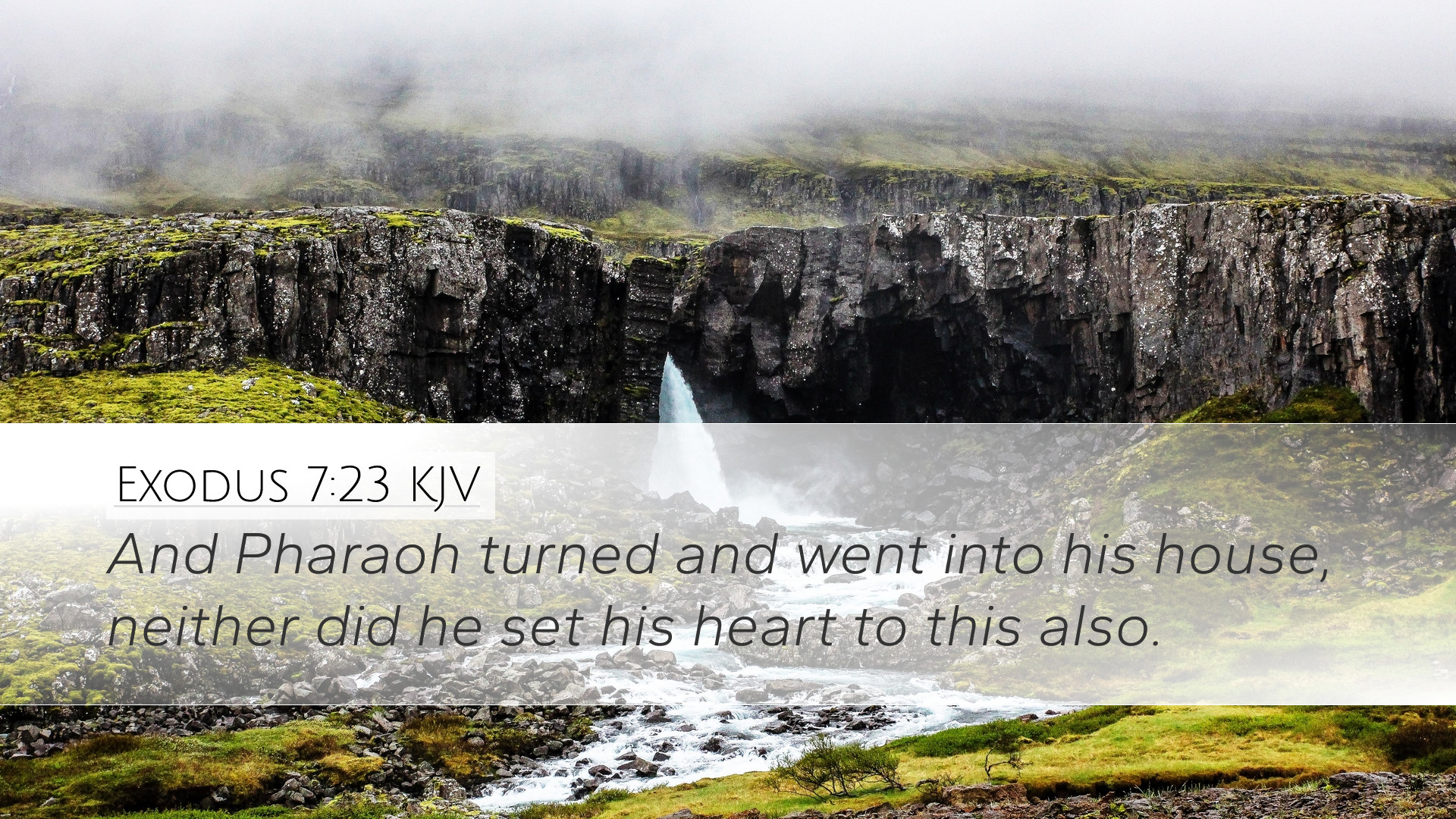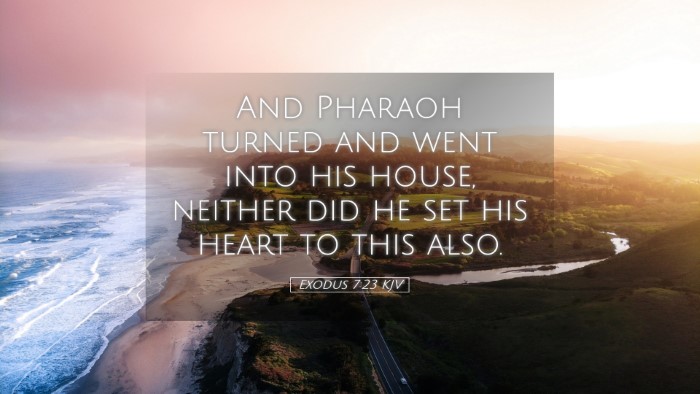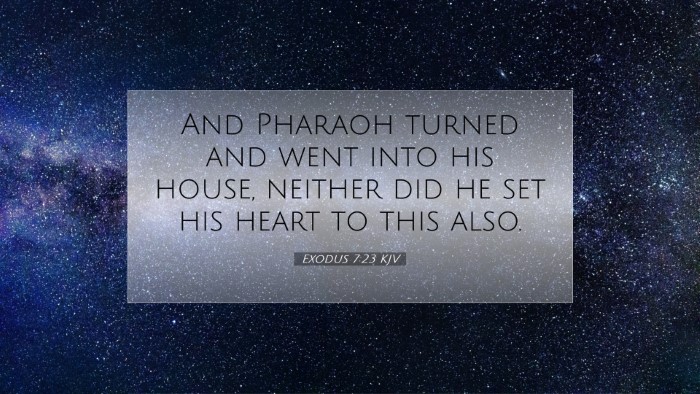Exodus 7:23 - Commentary and Insights
In Exodus 7:23, we find a significant moment in the Israelite exodus narrative, particularly related to the unfolding events surrounding Moses and Pharaoh. This verse states:
"And Pharaoh turned and went into his house, neither did he set his heart to this also."
Contextual Overview
The broader context of this verse is set within the framework of God's plagues upon Egypt, aimed at convincing Pharaoh to release the Israelites from bondage. The immediate chapter details the first miracle of turning the Nile River into blood, which serves as both a judgment against the gods of Egypt and a demonstration of God's power through Moses.
Commentary Insights
This verse has garnered attention from numerous theologians and scholars across history. Below are insights drawn from prominent commentaries:
Matthew Henry's Commentary
Henry emphasizes the hardness of Pharaoh's heart as portrayed in this passage. After witnessing a divine miracle, rather than being softened or moved by the display of God's power, Pharaoh's reaction was one of indifference:
- Indifference to God’s Authority: Henry points out that Pharaoh's quick return to his house signifies not just dismissal but an active resistance to acknowledging the authority of God and His servant, Moses.
- Sign of Spiritual Blindness: The comment on Pharaoh's failure to 'set his heart' indicates a deeper spiritual blindness. Despite experiencing the miraculous, he chooses disbelief, setting a precedent for future plagues.
- Human Nature: Henry reflects that Pharaoh represents humankind's tendency to forget divine interventions in times of trouble, highlighting a profound theme of human forgetfulness and rebellion against divine authority.
Albert Barnes' Notes on the Bible
Barnes offers a detailed analysis of Pharaoh's response. He suggests that Pharaoh's lack of concern signifies a crucial moment in the narrative where the hardness of man's heart is showcased:
- Pharaoh's Reaction: Barnes notes that Pharaoh's retreat into his house illustrates a refusal to reflect on the implications of such a miracle, underscoring a recurring motif of rejection in the exodus narrative.
- Obstinacy: Barnes comments on how this obstinacy serves as a foreshadowing of the future consequences for Pharaoh and the Egyptians. It illustrates how initially, Pharaoh does not perceive that his defiance towards God carries severe repercussions.
- Holiness of God’s Judgments: This reaction implies the urgent need for human recognition of God's power, embodying the struggle between divine sovereignty and human autonomy.
Adam Clarke's Commentary
Clarke brings a theological perspective, emphasizing the nature of Pharaoh's heart and its alignment with the biblical motif of rebellion against God. He remarks on several key themes:
- The Role of Divine Sovereignty: Clarke draws attention to the sovereignty of God over earthly rulers, suggesting that Pharaoh's reluctance to yield is an illustration of a greater cosmic struggle between divine will and human pride.
- Moral Implications: He emphasizes that Pharaoh's turning back signifies a conscious decision to ignore the moral implications of his actions, a theme relevant to theological discussions on sin and repentance in biblical literature.
- Instructive for Leaders: Clarke advises that leaders must heed divine warnings and engage with God’s instructions, as failure to do so leads to dire consequences, highlighting a practical lesson for both historical and contemporary leaders.
Application for Pastors and Theologians
This verse serves as a profound lesson on the nature of human response to divine authority. Here are a few key applications for ministry and theological reflection:
- Understanding Hardness of Heart: Pastors can utilize this passage to teach about spiritual receptivity and the dangers of a hardened heart, both in ancient times and today.
- God’s Sovereignty and Human Agency: The balance between divine election, human free will, and the sovereignty of God is crucial for understanding God’s dealings with humanity, especially in the context of leadership.
- Encouragement for Perseverance: This narrative encourages believers to remain steadfast and faithful, highlighting the need for persistent prayer and advocacy even amidst apparent indifference from those in power.
Conclusion
Exodus 7:23 encapsulates a moment rife with theological significance, teaching us about the nature of human resistance to divine will and the necessity for attentiveness to God's actions in the world. Through the insights of Henry, Barnes, and Clarke, we have explored the multifaceted lessons this verse offers, both historically and in contemporary application.


